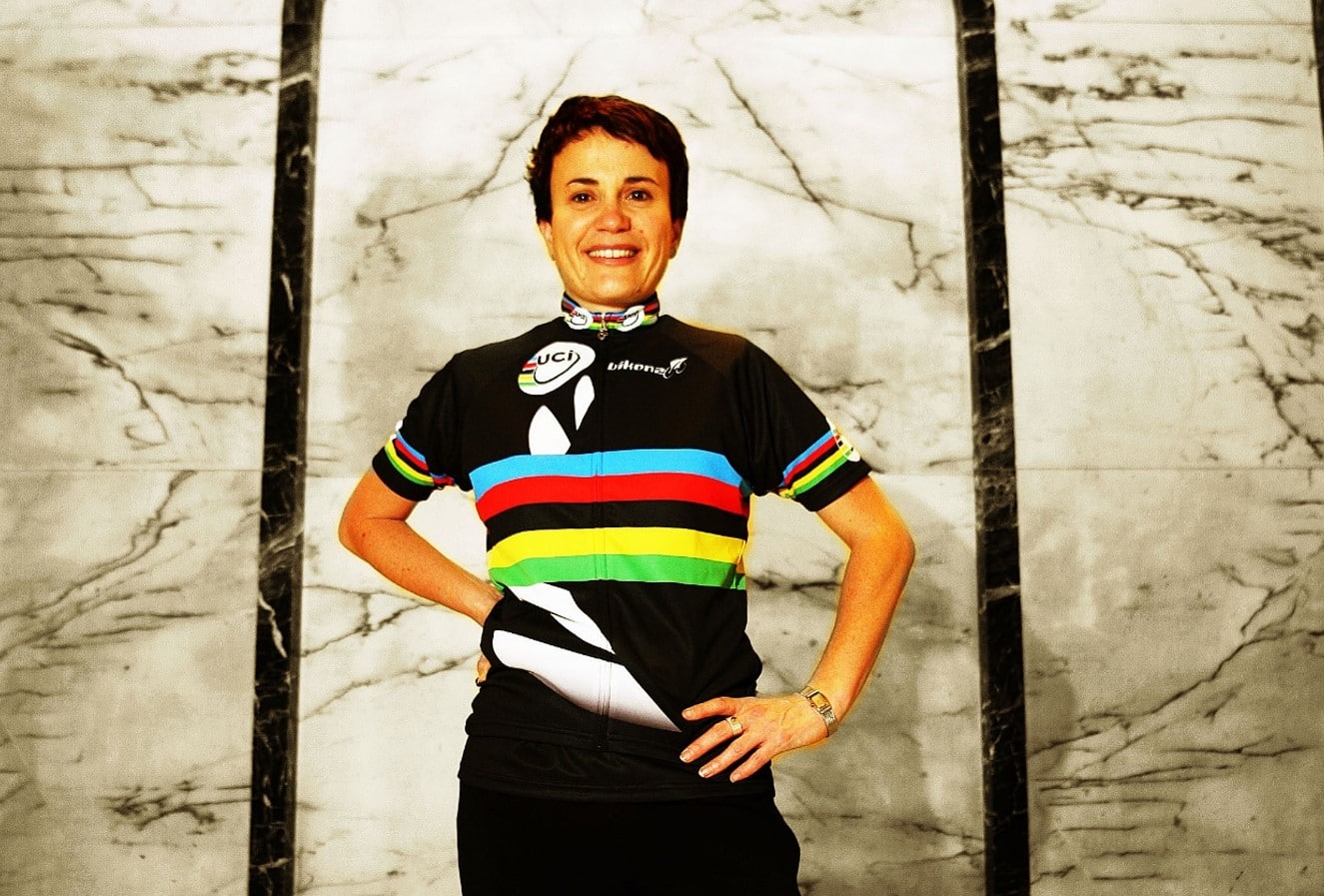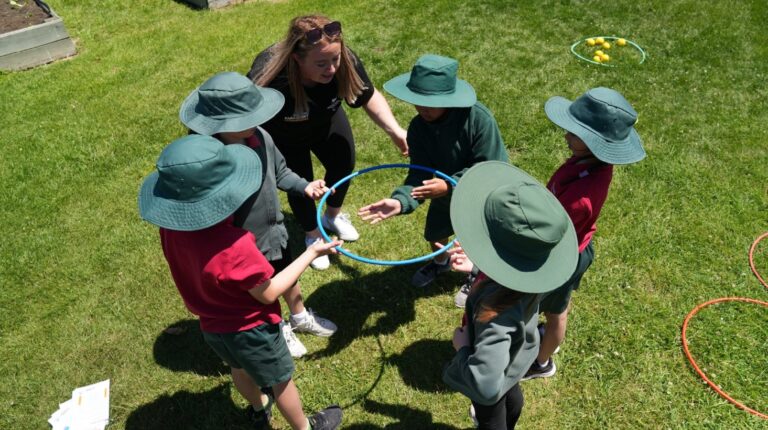Worldwide, the response by governments to COVID-19 have emphasised that we are all in this together. And it got me thinking about whether we can stay in this together. By staying in this together, we have a fighting chance of achieving the catch-cry of the Sustainable Development Goals, “leave no one behind“.
In rebuilding our world, can we achieve a more inclusive society? Will the 15 per cent of the global population who are disabled people be front and centre, or will we be left behind? And how can sport help?
New Zealand is deservedly being heralded around the world for our public health response to the pandemic. As at 8 June, we have had 17 consecutive days of no new cases and we have no active cases. Our total number of confirmed cases remains at 1,154, with 22 deaths. As of 9 June, all social, sports and business restrictions have been lifted though tight border controls remain in place. In effect, we are now entering a new “business as usual“ which offers opportunities for creating a more inclusive society that we can’t afford to miss.
As the Disability Rights Commissioner[1], I was closely involved in monitoring the impact on disabled people (24 per cent of our population) and on escalating issues for resolution. So, how did we do? It’s important we can critically examine this if we are to rebuild New Zealand to be more inclusive and be better prepared for events of this magnitude.
The New Zealand Government moved at speed to firstly initiate boarder restrictions and then some weeks later introduce a range of restrictive measures including the requirement to stay at home (we called this “lockdown“ under Level 4 of a national alert system).
The UN Special Rapporteur on the Rights of Persons with Disabilities has noted her deep concern at the immense challenges that persons with disabilities are experiencing due to emergency measures, which have resulted in the disruption of essential support networks. It became apparent very quickly in New Zealand that existing gaps in services and policy approaches were exacerbated for disabled people. I’ll touch on some of the key challenges.
Like other countries, access to Personal Protective Equipment (PPE) was an issue and is now the subject of an independent inquiry in New Zealand, to which I have contributed. Some disabled people reported telling their carers not to come without PPE and some carers understandably did not want to work without PPE. Thousands of disabled people are cared for by community care workers each day, many who go into multiple homes. In my view, not being able to access PPE gear and delays in community specific guidelines put the well-being of some disabled people at risk.
Access to food was an issue. Supermarkets created online shopping spots to reduce physical queues, but some disabled people (many not able to get to a supermarket) reported not being able to access these spots and therefore relying on emergency services. Then there were those who did go to supermarkets only to face judgement about being out. For some people with neuro-disabilities and learning disabilities, faced judgement for not being familiar with these new social ‘norms’.
The digital divide created real challenges for those disabled people who simply could not access online information. This was also an issue for some disabled children learning at home, without tactile and hard copy resources in the early days, though this was eventually mostly remedied.
Access to information is critical for participation, and this is an area we must learn from. There were considerable delays in getting accessible formats made available to disabled people. At a time when information changed almost daily, the frustration was palpable. Disabled Peoples Organisations worked incredibly hard to create accessible formats, but there were delays in getting the information through the official channels and out to the public.
While there was frustration, there was also a great willingness by the Government to work in partnership to improve the provision of accessible formats throughout the COVID-19 response and I think the experience will ultimately lead to better provision of information in the future. One of the positive illustrations of communication was the use of NZ Sign Language in the daily televised online briefings by the Prime Minister and Director-General of Health.
Transport issues were exacerbated through reduced services, or changes in operating procedures such as only rear bus doors being opened, despite accessible entrances being at the front.
A common issue raised with me was the lack of usual supports such as respite care not being available, (except in very extreme cases), creating real stress and pressure for families.
Perhaps one of our biggest learnings will be seen in the absence of disability data. It’s an old truism that if you are not counted, you don’t count. Like many other countries, disaggregated disability data is scarce in New Zealand. It is vital that countries collect good information about disability so that we have more than anecdote to rely on about the impact of COVID-19 on disabled people and can better plan for future events.
Disabled people in New Zealand watched with sadness, pain and, at times, horror at what was happening around the world. Stories of not-for-resuscitation orders for disabled people were shared, and allegations of eugenics at play as discussions took place about who would receive life-saving treatment. Our concerns were valid, not because of anything any New Zealand leader said or medical professional did, but simply because we were in unprecedented times, changes were happening fast, and anything was possible.
Because of our excellent public health response, we have not had to confront these rationing decisions in New Zealand, but when we face a lifetime of poor attitudes and barriers in which disability can be seen as ‘a life not worth having’, it is not surprising that many were scared and felt powerless that the state might have to judge whose lives do and don’t matter.
I was linked in early through monitoring and escalating issues and I saw first-hand agencies grapple with how to ensure marginalised groups were responded to. A stream of work with multiple population groups (e.g. indigenous peoples, older people, disabled people, those on benefits) was set up within government. This was the right thing to do – and it highlighted existing gaps that needed urgent sealing. Some of the band-aids worked, and some gaps were just too large for immediate resolution. This stream of work showed a genuine willingness to work in partnership as contemplated by Article 4.3 of the UN Convention on the Rights of Persons with Disabilities. For gaps to be immediately resolved in future, plans need to be integrated at all levels within government and across agencies.
Disabled people started from behind so we were likely to remain behind during the response and inequities exposed. The focus must now be on equity and ensuring we start from the same place in the recovery. This has never been clearer in my mind than the transition to loosening restrictions that have been in place and where the return to business to usual is not straight forward for disabled people.
It pained me to hear that many members of the disability community enjoyed lockdown in Level 4 because they did not have to face the daily grind of the barriers ordinarily encountered. Barriers like inaccessible venues and transport, inflexible employment, an education system that is not always welcoming to disabled students, inaccessible information, a lack of accessible homes, the list goes on. I believe New Zealand will need to accelerate much of the Disability Action Plan (a series of commitments by the Government) to help ensure the human rights of disabled people are better protected.
But some good things have emerged, and we must hold on to them. One positive was the introduction by the Ministry of Health of substantially more flexible funding arrangements for people who access disability support services so they could have greater choice and control over their individual budgets. This move is to be applauded and shows that putting control in the hands of disabled people is the right thing to do.
And the pandemic has shown us how we can work differently. Flexible employment arrangements and greater reliance on technology all have the potential to enrich the lives of disabled people and be the circuit-breaker needed to improve the unemployment rates for disabled people, nearly twice that of non-disabled people in New Zealand. Businesses looking for that edge in the new environment should want to make their services accessible because 24 per cent of New Zealand’s population of disabled people is a large market share.
The Government’s recent Budget included new housing initiatives and the launch of “shovel ready“ projects which provide an opportunity to build in universal design principles so all people can participate. I’ve asked Ministers for reassurance that we won’t lose this opportunity to create a more inclusive New Zealand. The pandemic also created an urgency for agencies to respond to disabled people, and I am hopeful that those who might not have had disability at the forefront of their work and thinking, will now do so.
Disabled people are no stranger to the isolation, restrictions and exclusions that New Zealanders experienced. Suddenly, non-disabled people experienced some of the things we face in our daily lives. If we all hold on to this, we might help change attitudes about disability. I believe the pandemic has unified the disability sector domestically and globally – joining forces and amplifying voices gives me hope for a brighter future.
My continued commitment to sport is because, like the values embodied in the work of the IPC, I believe sport creates social inclusion. Sport unites and connects people, it is a great leveller during times of crisis, it helps people get back into some form of new normality.
As Chef de Mission for the New Zealand Tokyo 2020 Paralympic Team my thoughts were with our Paralympians and Para athletes who were also at home during our lockdown period. What started as a year of hope, optimism, dreams of gold medals and showcasing their talent to the word has become a year of uncertainty, challenge, and new timeframes. The qualities of resilience and determination, hallmarks of being an athlete, have stood our team in good stead.
With the support of Paralympics New Zealand (PNZ) and High Performance Sport NZ, our Para athletes were able to set up home gyms, and have continued access to online support from coaches, nutritionists and sports psychologists. Some Para athletes posted online videos of their new training environments and it was great to follow their progress.
Our Para athletes are now slowly and safely starting to return to their training environments. But challenges remain, particularly funding challenges from sourcing the 35 per cent of Paralympics New Zealand funding that comes from non-government sources in an economy significantly impacted by COVID-19.
The Government recently announced a $265m Recovery Package for sport. Now is the perfect time to advocate for this investment to assist sport and recreation providers to improve their capability for the inclusion of disabled people.
Whether we can create a more inclusive world as we rebuild depends on our collective advocacy and calls to action to address the equity gaps for disabled people that have existed for far too long and that were exposed during the pandemic response.
This is up to all of us.
As we all build towards the Tokyo 2020 Paralympic Games, let’s see if the world can “stay in this together“, learn from things that could have been done better, amplify the things done well and ensure no one is left behind.
Paula Tesoriero MNZM, the New Zealand’s Disability Rights Commissioner, Paralympian #168, Paralympic gold medallist and Chef de Mission for the New Zealand Paralympic Team for Tokyo 2020.
[1] A statutory role under the Human Rights Act 1993, responsible for promoting and protecting the rights of disabled New Zealanders, primarily through advocacy.



























